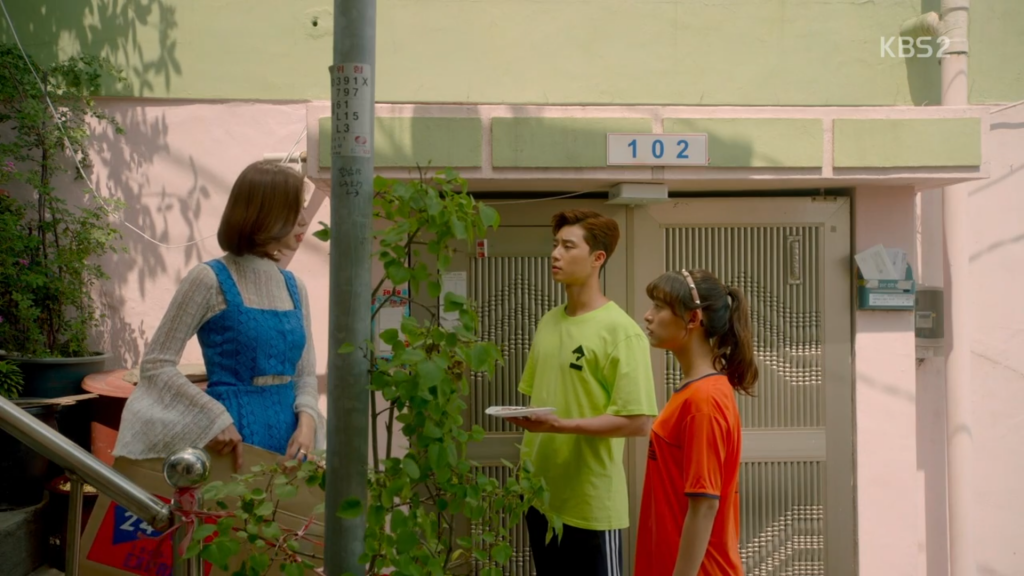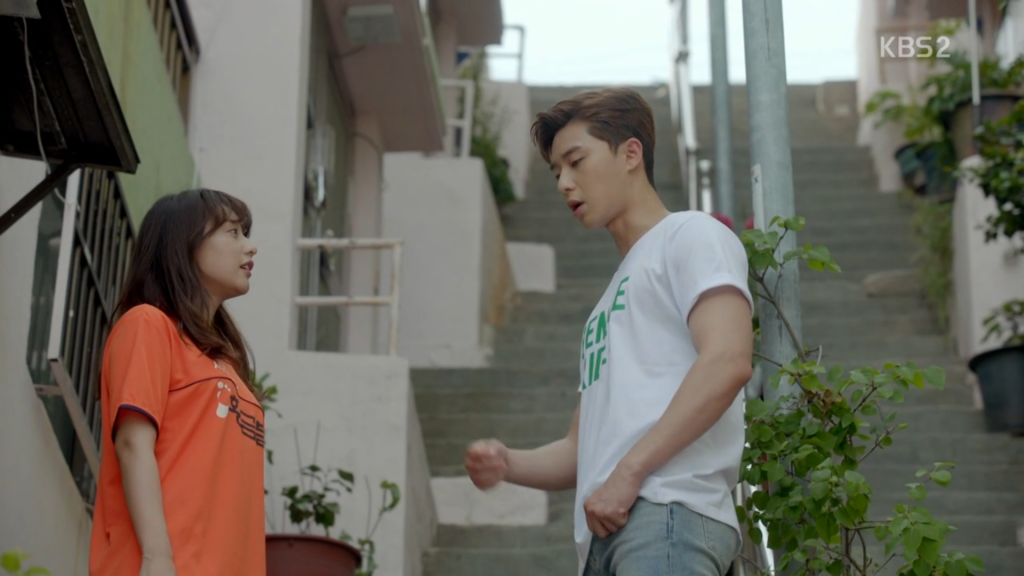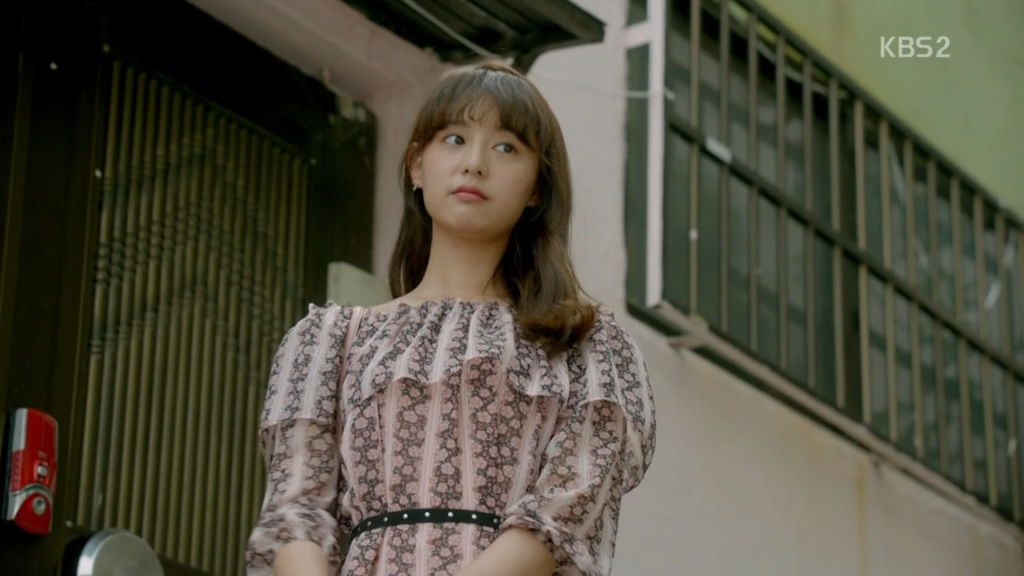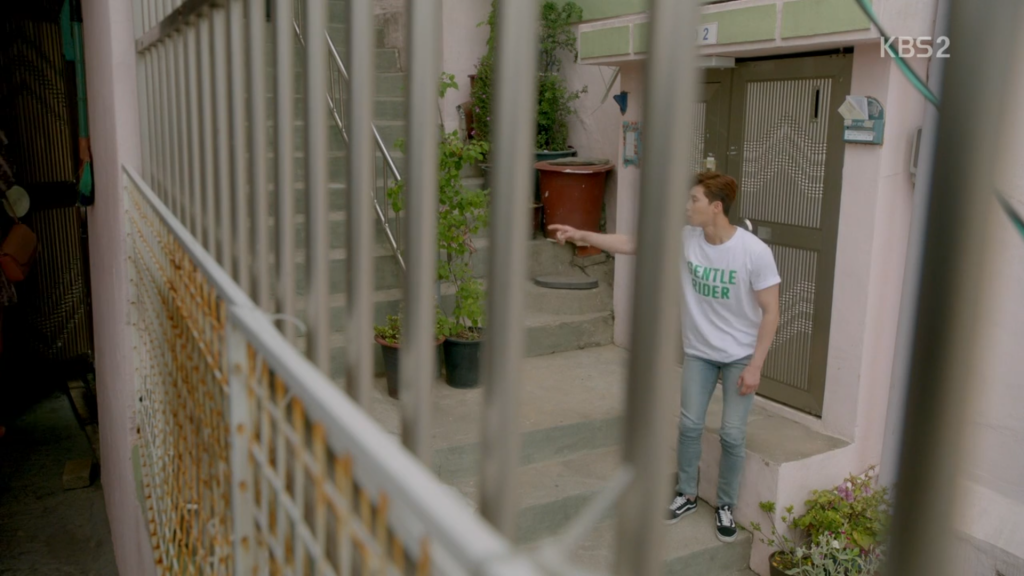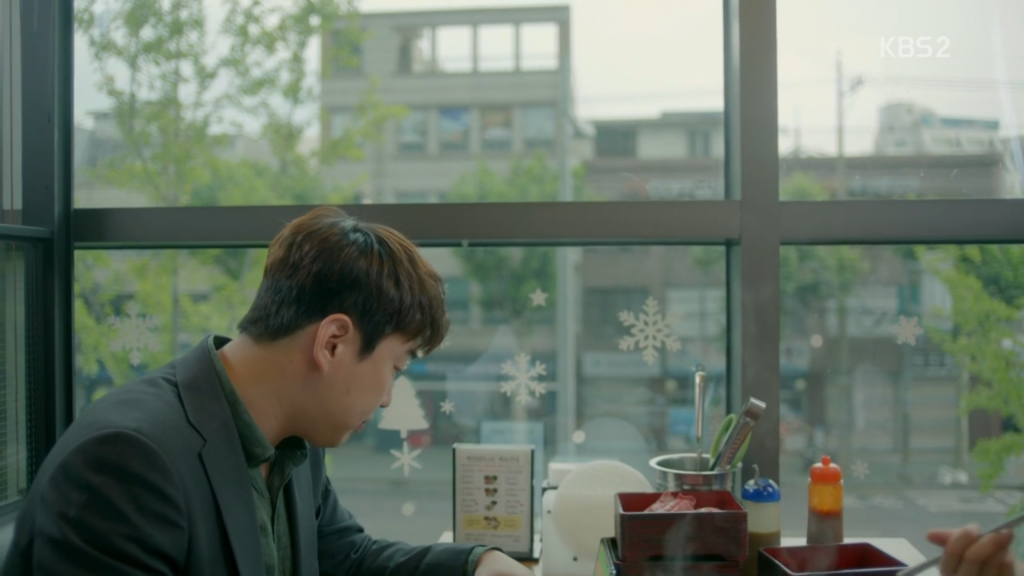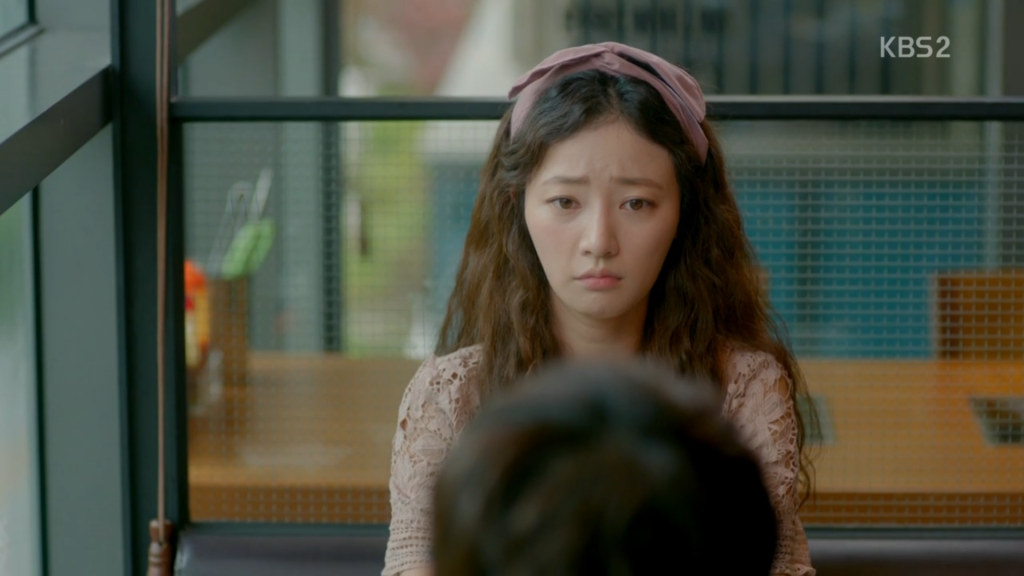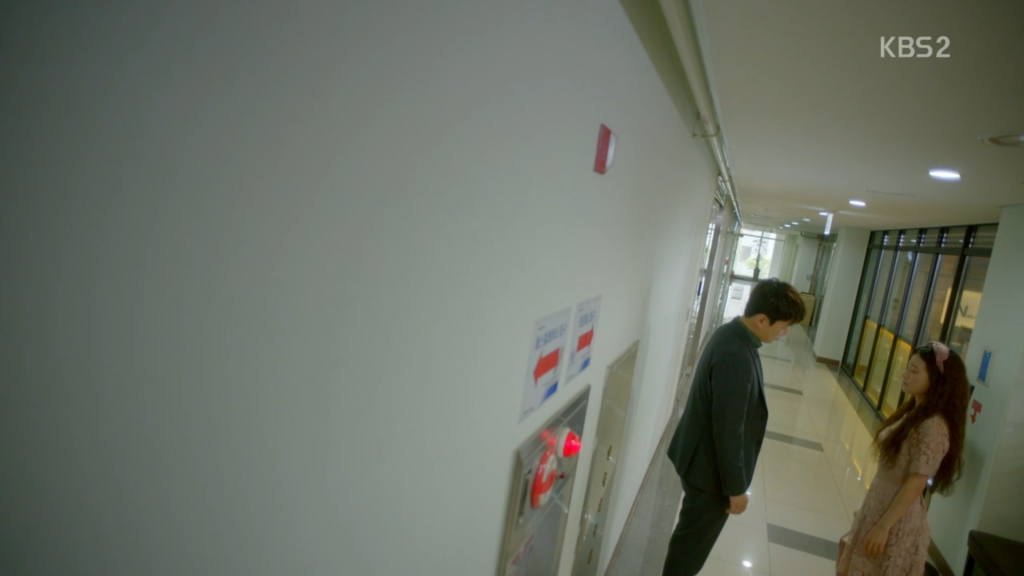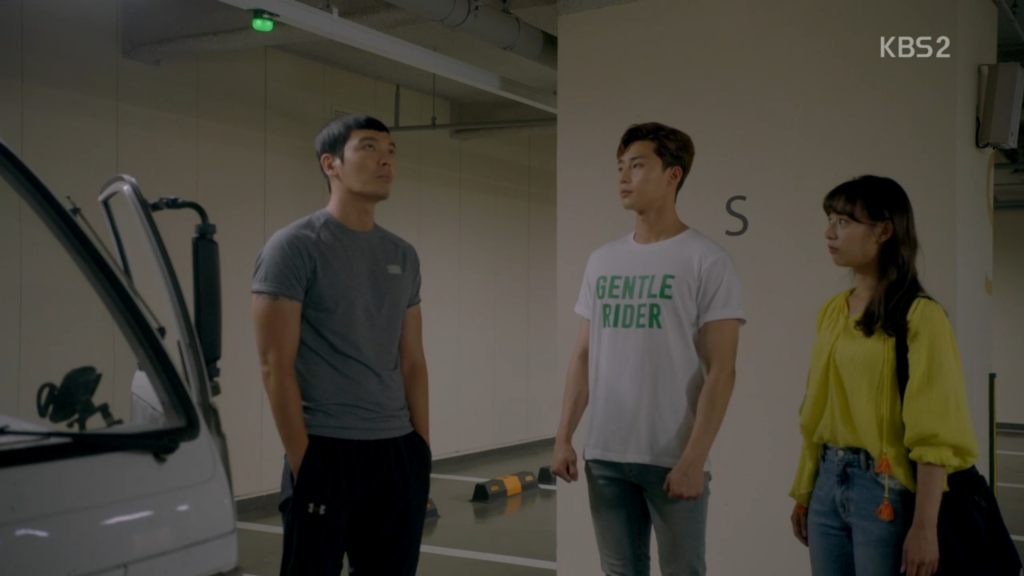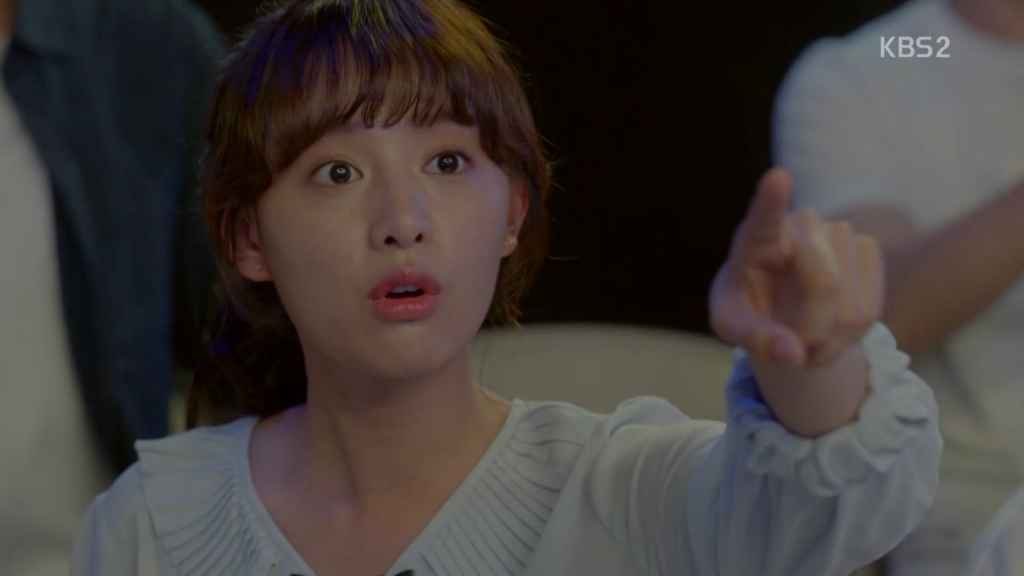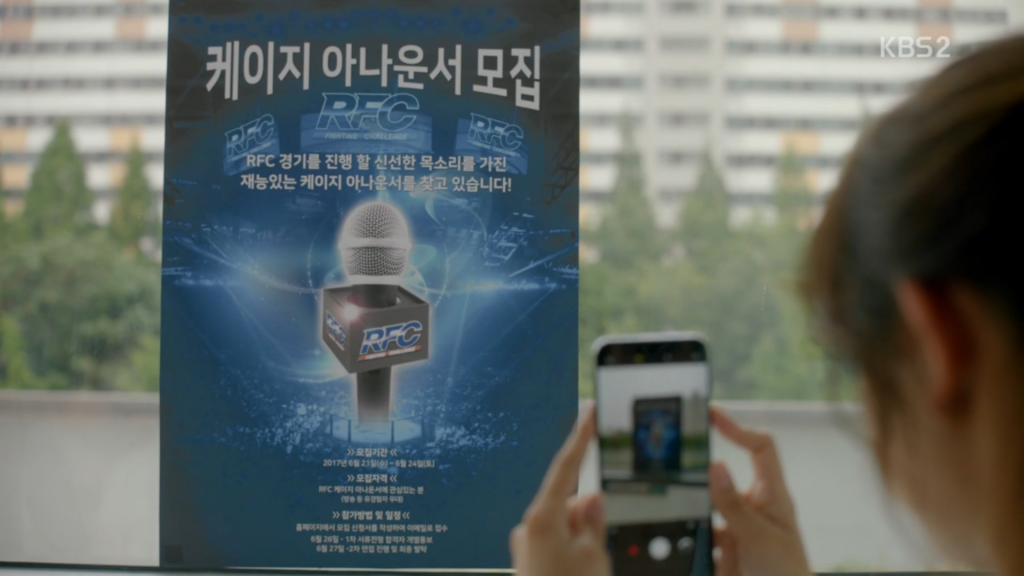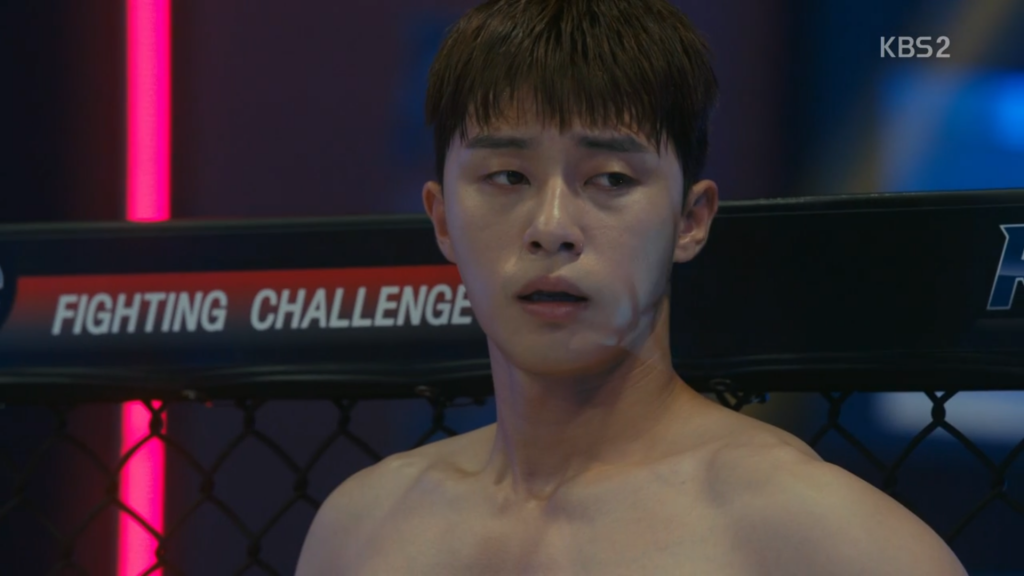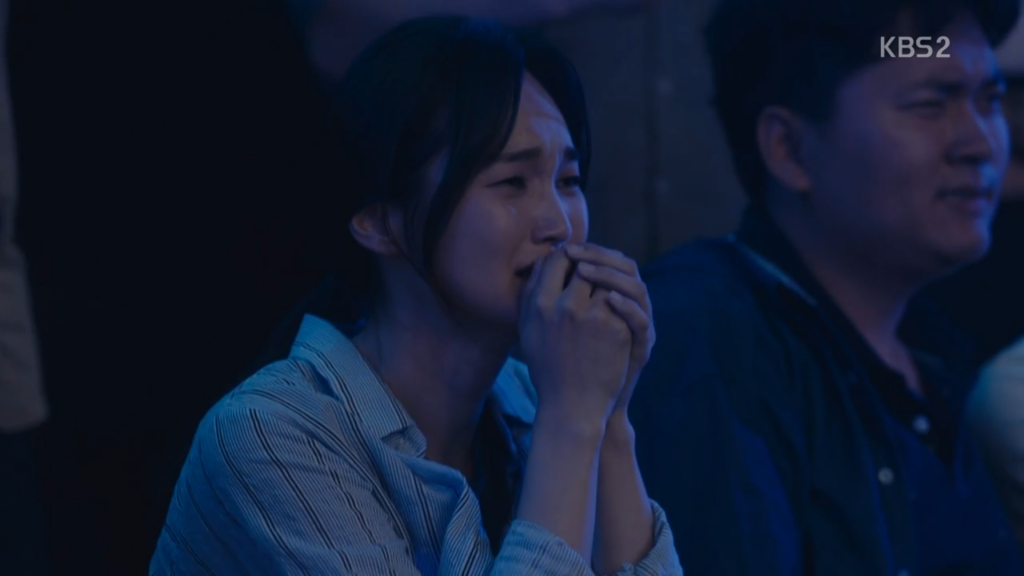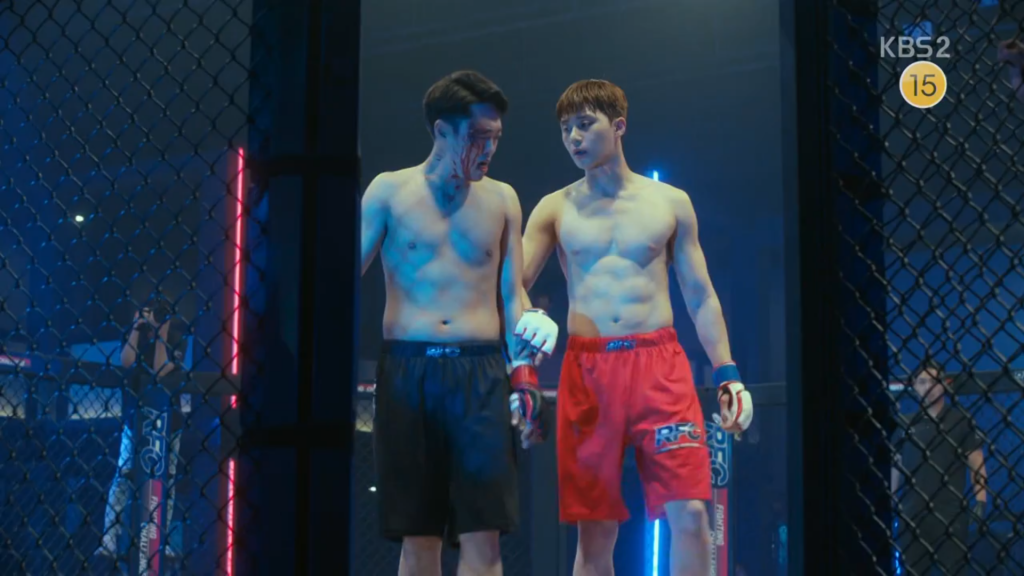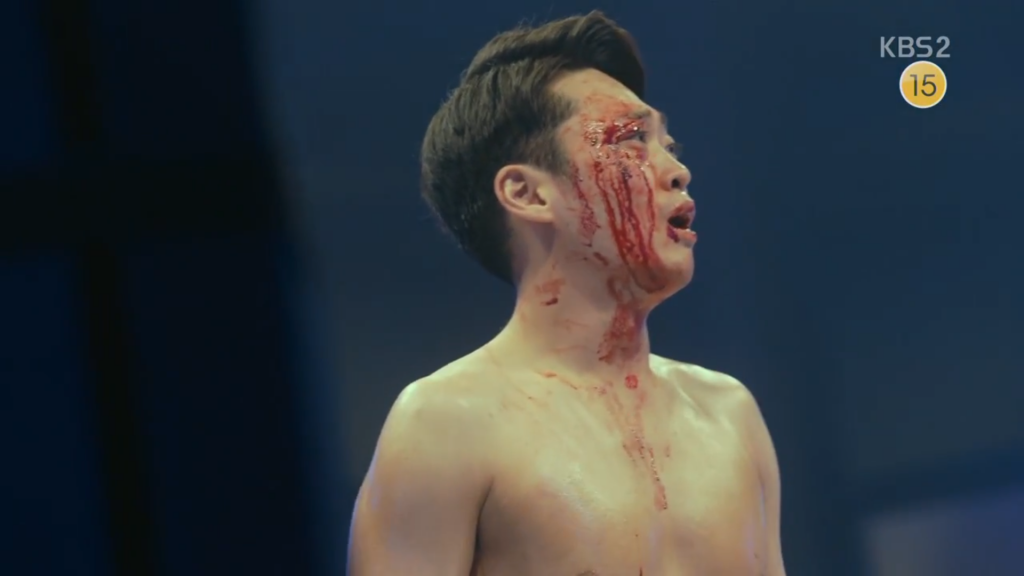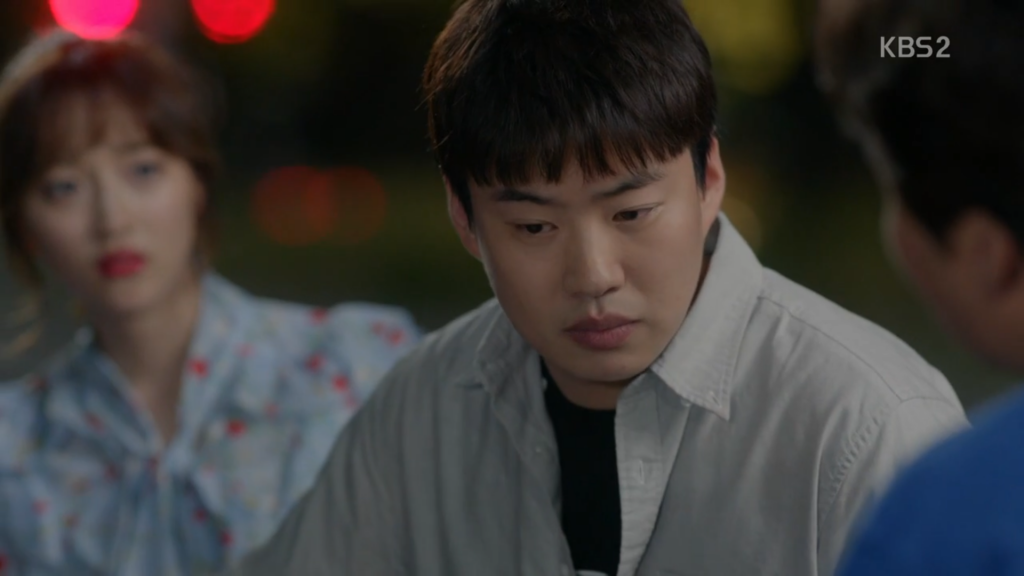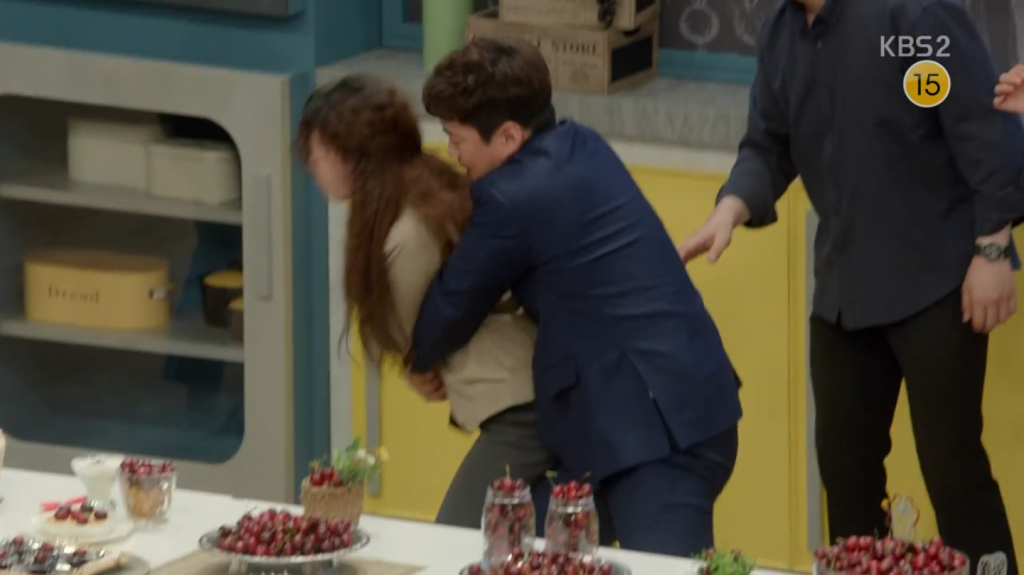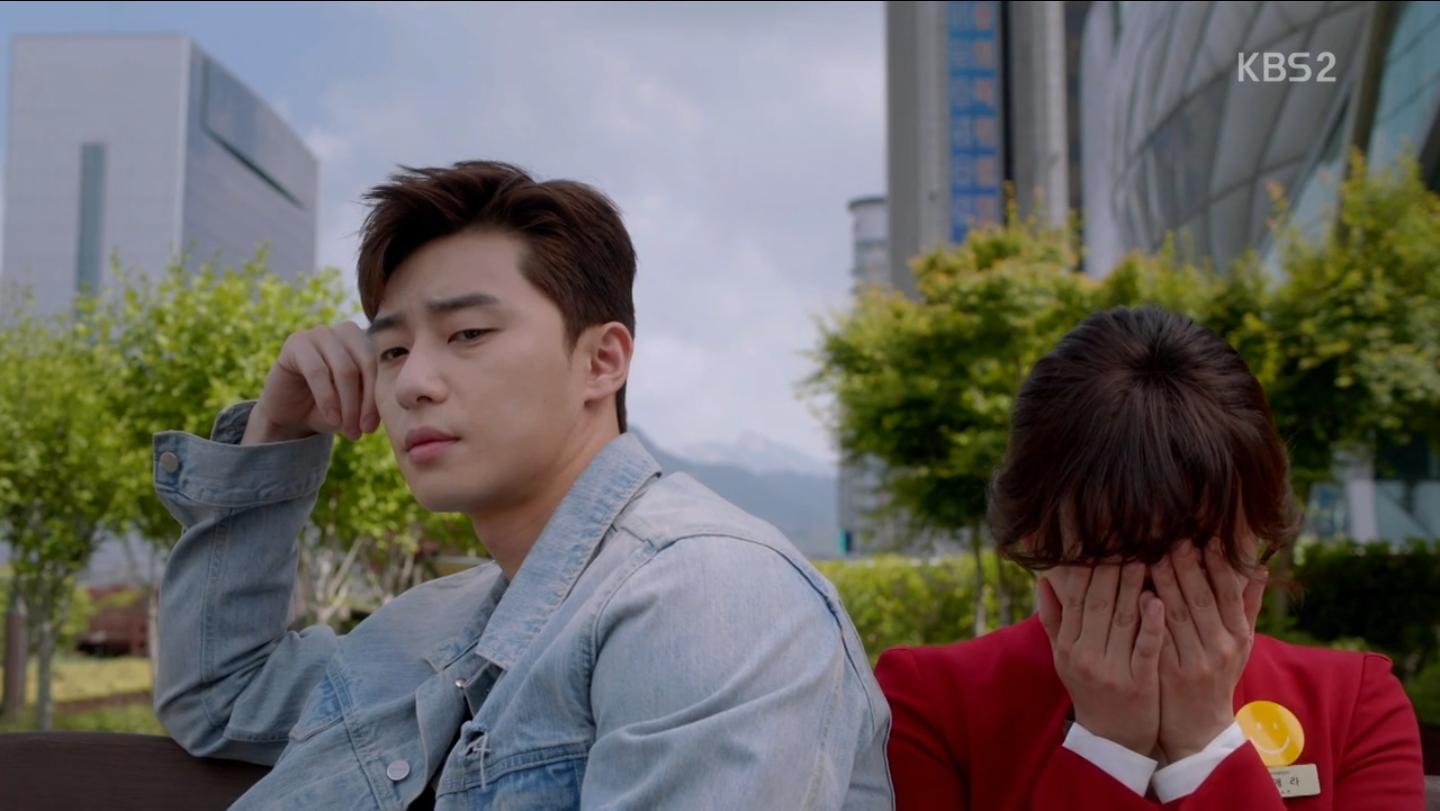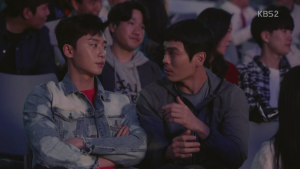Inequalities deteriorate the Korean economy
[Introduction]
Since the IMF, Korean society has been suffering from social inequality more than ever as the gap between big and small enterprises, regular and irregular workers, upper and lower class in society (Kim 2006: 27). This paper will show arguments about how inequality in Korea deteriorates the Korean economy. First, I’ll talk about income inequalities in Korea and give examples related to Korean Dramas, Fight for My Way and Age of Youth. After, I will talk about relationship of gap(갑) and ul(을) in Korean society. And how this relationship leads to crash of Korean economy. And for last, I will talk about low birth rate and high suicide rate due to the inequality in Korean society.
[Income inequalities in Korea deteriorate the Korean economy.]
Money in Korean society immediately becomes the rank of the person (Lee 2105: 466). So if you have a lot of money, there are more things you can do than the poor in Korea.In the drama Fight for My Way, the main characters: Ko Dong-man, Choi Ae-ra, Beck Seol-hee, and Kim Joo-man represents ordinary Korean late 20s. In the drama, somehow they all have jobs but they all faced inequities in Korean society. Ko Dong-man and Choi Ae-ra’s family are not rich. They are rather poor. Their parents do not have a fancy job. And their family lives in the countryside of Korea. Currently, discrimination between urban and rural areas, gender, and educational background is generalized in Korean society, but the discrimination between those who rich and those who are poor are maximized in Korean society these days (Park 1989: 78).
As you can see from the drama, the main characters, Ko Dong-Man and Choi Ae-Ra gets discrimination from society most of the times. They live hard despite having a job. Statistically, only about 5% of Korean youths are able to enjoy stable jobs and labor opportunities, and other 95% live in a dark and unpredictable reality, which is hard to escape from the unstable labor situation of low wages of 880,000 won (Song 2017: 29-30). Since the IMF, income inequality has increased in Korean society (Cho 2016: 6). As Korea’s income inequality increases, the expected income of the children of a family is affected by the background of the family, not their own efforts. (Cho 2016: 11).
Korea is a country with a very high level of education. Therefore, education gap arises between poor and rich. The wealthy children who have a lot of private tutoring due to high household income will have higher education and go to the prestigious schools than the poor children (Nan 2011: 17). Therefore, it leads again to the class divide. Even when they are in university, poor children must receive a student loan in order to continue their study. In Korea, student loan has a higher interest rate than the standard interest rate (Cho 2016: 17). After graduating from college, as I mentioned before, 95% will live a life of unstable life. Therefore, young people are competing with middle-aged workers with stable jobs, and are competing with elderly people with relatively low-quality irregular jobs such as working at convenience stores and gas stations (Cho 2016: 17). As the unemployment problem of young people deepened, the number of college graduates and high school graduates who entered irregular employment type increased significantly (Shin 2009: 36).
The income inequality leads to the upper class people solve the household deficit with low interest rates, while the poor people gets refused from the loan due to the low credit. So poor’s get the high interest loan. So that they can hardly escape from poverty even if they live diligently (Lee 2015: 463). In the drama, Age of Youth, the character Yoon Jin-myung best represents life of university student in Korea. She had to give up her school grades and earn money. And because of high tuition, she often had to take a leave of absence. Therefore, her graduation was delayed. As these problems persist, the Korean economy will deteriorate.
[relationship of gap(갑甲) and ul(을乙) deteriorates Korean economy.]
In Korea, there is a word of tyranny of large corporations. What this means is that large companies make unreasonable demands by taking advantage of their superior status (Choi 2013: 293). In Korea, big companies are always in a high position because big companies have a lot of money and social power. And ordinary people are in a low position because people do not have as much money and social power as large corporations. Therefore, the Korean people in the society should always have to do what the large corporations want. Therefore, large corporations become richer without suffering losses, and poor people become more and more pauperous because poor people cannot do anything and must follow the needs of large corporations while paying damages to survive.
In the drama, Fight for My Way, episode 7, a similar situation arises. In the drama, there is Ko Dong-man, the main character of the drama, and Ko Dong-man’s rival, Kim Tak-soo. Kim Tak-soo has rich parents and Ko Dong-man does not have rich parents. Ko Dong-Man and Kim Tak-soo are mixed martial arts (MMA) players. In the drama, Kim Tak-soo wants to make Ko Dong-man unable to succeed as a mixed martial arts (MMA) player. So, to prevent practice and exercise of Ko Dong-man, Kim Tak-soo intend to purchase a gym operated by Ko Dong-man’s coach Hwang Jang-ho and close down the gym. The building owner visits coach Hwang. The owner asks the coach Hwang to leave the building by next month. Coach Hwang asks the landlord lady not to discard him and the gym. Coach Hwang offers landlord lady that he will provides the free sundae(순대) for every day and free diet program for her until landlord lady is satisfied. Through this dialogue, people can understand the situation of Korean class society. The landlord, who has the authority to close coach Hwang’s gym, is in high position of relationship with coach Hwang. On the other hand, coach Hwang, who is in a low position in the relationship, take damages to remain his business. In Korean society, due to the tyranny of using the superior position of a large corporations based on their capital strength (Choi 2013: 294), the small business owners who run small stores will suffer damage (Jang 2012: 69). Coach Hwang, who owns a small business in the drama, suffers from a capitalist landlord lady and Kim Tak-soo.
Problems in these class societies also appear in service relationships. Episode 5, in the drama Fight for My Way, shows a very bad realistic class society of Korea. In the drama, Choi Ae-ra, who works at the department store, catches the thief lady. But Choi Ae-ra ended up apologizing to the thief lady. Because she was a VVIP customer. Immediately after Choi Ae-ra caught the thief lady, the next scene shows the manager apologizing to the lady. Thief lady was the one who did something wrong, but instead of apologizing for her action; she was actually getting an apology from the manager and Choi Ae-ra. And later in the drama, she says, “The money I spend here includes her pay, tips and the right to make her kneel, doesn’t it?”. Even if Choi Ae-ra did the right thing, she had to kneel and apologize to the VVIP thief lady. And at the end, the manager thanks the thief lady for forgiving Choi Ae-ra. In the drama, Choi Ae-ra deserves the reward from the department store after doing the right thing, but instead, she had to kneel and apologize to the VVIP thief lady to avoid losing her job.
There are many unfair things happening in Korean society these days. In 2014 there was a very famous nut rage incident in Korea.
The eldest daughter of the airline’s chairman, Cho was a Korean Air vice president in charge of in-flight service at the time of the December 5 incident on board a Seoul-bound KAL flight that had just left the gate in New York. As the plane was taxiing to the runway, Cho, sitting in first class, became enraged after a flight attendant served her some nuts in a bag, rather than on a plate. She lambasted the chief steward over the behavior of his cabin crew and then ordered the plane back to the gate so he could be ejected.1
Chief steward, Park Chang-Jin had to kneel and apologize when this happened on the plane. After this incident, Park Chang-Jin was able to take a break from his work. But, when he returned to work, he claims that he was treated unfairly and made his job hard enough to make him quit his job on his own, because the company cannot fire Park
Chang-Jin without any reason. As this situation became a huge social issue, Park Chang-jin did not lose his job, but when similar situation happens in a Korean society,
realistically, employees will be more likely to lose their jobs. The loss of jobs will lead to a rise in the unemployment rate in Korea, and people who lost their jobs will not spend more money in society because they do not make money. Therefore, money will not circulate in Korean society and there will be high chance of collapse in the Korean economy.
1 Korean Air heiress Cho Hyun-Ah apologizes for ‘nut rage’ incident after being freed from jail on appeal. http://www.abc.net.au/news/2015-05-22/korean-air-heiress-in-nut-rage-case-freed-from-jail/6489996 (Accessed November 20. 2017)
[Inequality leads to suicide and low birth rate which deteriorates Korean economy.]
Since the IMF, there has been a problem that the suicide rate of the Korean society is rapidly increasing due to the expansion of inequality and the rapid increase of the poverty (Kim 2006: 38). Korean society has recorded the lowest fertility rate and the highest suicide rate among the nation. (Lee 2015: 457). This is the reason for demographic rate problem. Due to inequality, Korean society refers to young people in their 20s and 30s who are hard to eat and live as ‘three po generations (3포세대)’. Three po generations means giving up on love, marriage, and childbirth (Song 2017: 31). “Po” from three po generation came from first latter “pogi (포기)” from Korean word. “pogi” means giving up.
In the drama, Fight for My Way, Ko Dong-man’s father asks Ko Dong-man when he will be married. Ko Dong-man responds he does not want to get married because he is afraid that his child might end up like himself living unhappy life. As in the drama, as the number of marriages decreased, the fertility rate also decreased. At present, South Korea has never exceeded the UN’s low birth rate standard of 1.3 for 15 years. This is the fertility rate at the wilderness level with little national future (Kim 2017: 123).
Another drama, Doctors, for example, in episode 15, the father of two children attempt suicide because of inequality. Because of inequality he could not escape from poverty. Poverty is a major social deprivation and blocks other life opportunities (Park 2008: 98). In the drama, his children do not get any advantages for the expensive surgery. However, children who do not have parents are free to do surgery, so the father decides to commit suicide to make his children orphans because he thinks that way is better for his children because orphans are able to get help from the government.
The inequality in Korean society has caused the birth rate in South Korea to drop and the suicide rate in South Korea to increase. Because of that, the current and future Korean society is highly likely to be a high elderly population and a low child and youth population. We call the 15-64 age group the working age population (Kim 2017: 30). Reduce of working age population is directly related to reduce of consumption market (Kim 2017: 30). Which means if the population declines due to low fertility, the market shrinks and the market shrinks, corporate investment shrinks and employment insecurity increases, leading to more severe low fertility and suicide rates. This endless loop will make Korean economy crash.
[Conclusion]
As this inequality of opportunity and income inequality increase, the satisfaction of individual life in Korean society is falling. South Korea was ranked 27th among the 36 countries surveyed in the “Happiness Index” among OECD member countries (Cho 2016: 6). Drama Fight for My Way, and Age of Youth shows the early to late 20s life in contemporary Korean Society. Both dramas show the life of low-mid income families and person and how hard it is to treated equality with high-income people. And it shows how hard to get out of Korea’s inequality society. After it talks about gap(갑) and ul(을) relationship of Korea. And finally talks about how inequality affects demographics of Korea. How is low birth rate and high suicide rate affects Korea’s economy? This paper references other paper to talk about relationship between inequalities and deteriorate of Korean society. Low demographics in working age population will decrease markets, which lead to harder economy. And harder economy will make hard for people to have good life that also leads back to high suicide rates and low birth rates for the future. This create endless infinite loop of deteriorates in Korean economy.
Bibliography:
Cho, Dong-Hyun and Kwon Hyeok-Yong. “Mueosi hangugineul bulhaenghage mandeuneunga?: sodeukbulpyeongdeung, gihoebulpyeongdeung, geurigo haengbogui gyunyeol gujo [What makes Koreans Unhappy?: Income Inequality, Inequality in Opportunities, and Social Cleavages of Happiness].” Gyeonghuidaehakgyo illyusahoejaegeonyeonguwon [Center for the Reconstruction of Human Society] 31, no. 1 (2016): 5-39.
Choi, Bong Seok and Ku Ji Sun. “Daehyeongmateuwa SSMui jayulgyujee gwanhanbeopjeok geomto [Legal Study on the Self-regulations of Large-scale Discount Stores and SSM].” Haengjeongbeobyeongu [Administrative Law Journal] 36, (2013): 293-318.
Jang, Kyo-Sik. “Daehyeongmateu yeongeopgyujejoryee gwanhan gochal [A Study of Regulations on Major Discount Stores’ Conducts of Business].” Beopagyeongu [Law Review] 48, (2012): 49-73.
Kim, Seong-Il and Jeong Chang-Ho. Sarajineun mirae- ingu chuksoga gajyeooneun gyeongjewa sijangui daebyeonhwan [Disappearing Future – Economies and demographic changes brought about by demographic decline]. Seoul: Hanseumidieo [Hans Media], 2017.
Kim, Soon-Young. “Bulpyeongdeunggwa hangugui minjujuui [Inequality and Democracy in Korea].” Aseayeongu [The Journal of Asiatic Studies] 49, no.4 (2006): 37-67.
Lee, Chung-han. “Gyeongjejeong bulpyeongdeunggwa siminjeong sam [Economic Inequality and Civic Life].” Cheolhangnonchong [Journal of the New Korean Philosophical Association] 82, (2015): 455-475.
Nam, In-Suk. “Hangugui sahoetpgyeongjejeong yanggeukwawa gyoyung gyeokcha [A study on Socio-Economic Bipolarization and Educational Inequality in Korea].” Hyeonsanggwainsik [The Korean Journal of Humanities and the Social Sciences] 35, no.3 (2011): 15-38.
Park, Kyeong-Suk. “Bingoncheungui saenghwalgwa uisik: saenghwalsegye nae bulpyeongdeungui jibaewa jeohang [Life and Consciousness of the Poor: Domination of Inequality and Its Resistance in Every Day Life].” Hanguksahoehak [Korean Journal of Sociology] 42, no.1 (2008): 96-129.
Park, Yeong-ho. “Bulgongpyeonghan gyeongjejeongchaeng wigijeong bunbaegujo [Unfair Economic Policy Crisis Distribution Structure].” daehangidokgyoseohoe [The Christian Literature Society of Korea] 33, no.12 (1989): 72-80.
Shin, Kwang-Yeong. “Sedae, gyegeupgwa bulpyeongdeung [Cohort, Social Class and Earnings Inequality].” Gyeongjewasahoe [Economy and Society], (2009): 35-60.
Song, Dong-Wook and Lee Ki-hyeung. “Buranjeonghan hyeonsilgwa daemyeonhaneun i sidae cheongnyeondeurui salme gwanhan jiljeogin bunseok: tsamposedaet, geurigo theljoseontiraneun homyeonge daehan cheongnyeonjuchedeurui chehwadoen daeeunggwa gwanjeomeul jungsimeuro [A Cultural Analysis of the Varying Modes of Survival and the Particular Structures of Feeling among Young Adults in Contemporary South Korea in an Era of Fierce Competition and Widespread Social Uncertainty].” Hangugeollonjeongbohakbo [Korean Journal of Communication & Information] 84, (2017): 28-98.

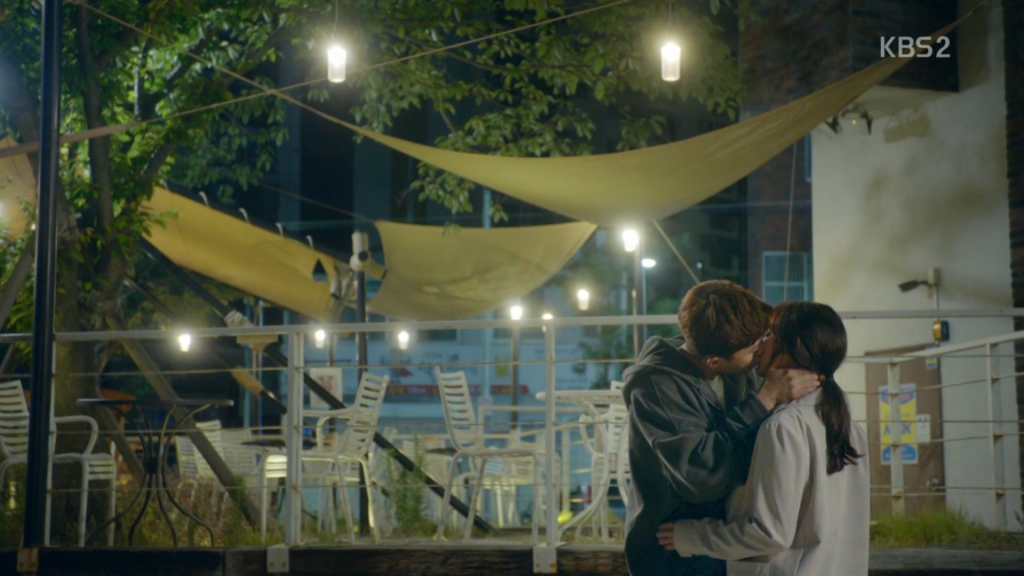 Ko Dong-Man and Choi Ae-Ra return home, and the next morning, they find out that Park Hye-Ran has moved to the same apartment. Choi Ae-Ra feels frustrated when she sees Park Hye-Ran. And Ko Dong-Man feels little bit surprised but he tells Park Hye-Ran that he is dating Choi Ae-Ra now.
Ko Dong-Man and Choi Ae-Ra return home, and the next morning, they find out that Park Hye-Ran has moved to the same apartment. Choi Ae-Ra feels frustrated when she sees Park Hye-Ran. And Ko Dong-Man feels little bit surprised but he tells Park Hye-Ran that he is dating Choi Ae-Ra now.